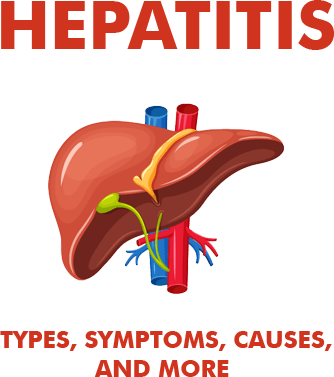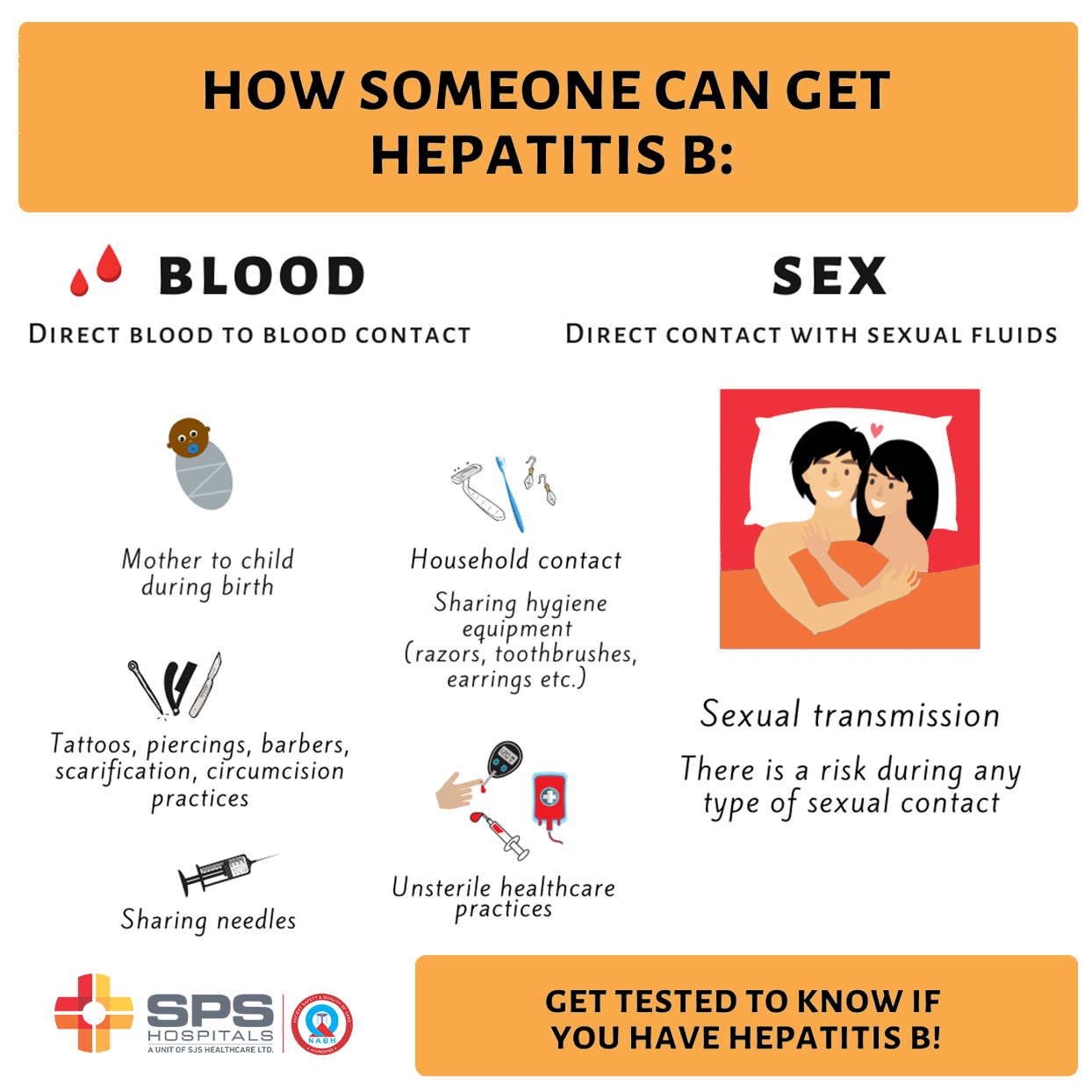World Hepatitis Day is celebrated globally on 28th July every year. In 2022 the theme is ‘I Can’t Wait’ to raise awareness among people about different forms of liver diseases and hepatitis is one of the liver disease. Globally, an estimated 58 million people have chronic hepatitis C virus infection, with about 1.5 million new infections occurring per year. There are an estimated 3.2 million adolescents and children with chronic hepatitis C infection. In addition to this, WHO estimated that in 2019, approximately 290 000 people died from hepatitis C, mostly from cirrhosis and hepatocellular carcinoma (primary liver cancer).
What is Hepatitis?
Hepatitis means swelling (inflammation) of liver which disturb the normal function of the liver. Major causes of hepatitis are Alcohol and viruses (Hepatitis viruses A, B, C, E). Certain drugs, toxins, ischemia, metabolic and autoimmune disorders may also contribute to hepatitis.
Types of Hepatitis Virus
There are five major types of hepatitis viruses which include Hepatitis A, B, C, D and E. Infection of Hepatitis A and E which causes the usual type of jaundice is caused by contaminated water and food whereas blood and body fluids are the main carriers of Hepatitis B and C.

Acute & Chronic Hepatitis
Hepatitis can be broadly sub classified as acute and chronic hepatitis. Acute hepatitis refers to rapidly oncoming liver dysfunction manifesting as decreased appetite, nausea and vomiting with fever followed by development of jaundice. It generally lasts 4-6weeks followed by recovery in majority of cases. Whereas in chronic hepatitis, disease persist for more than 6 months from the onset of the disease.
Majority of cases of chronic hepatitis includes Hepatitis B and C. There are vaccines to prevent Hepatitis A and B; however, there is no such vaccination for Hepatitis C and E. If a person has had one type of viral hepatitis in the past, it is still possible to get the other types.
Modes of Transmission
The routes of transmission include transfusion of blood or blood products( unscreened blood or people transfused before routine testing of blood products came in vogue) , sharing needles and syringes, unprotected sex ( without a condom) with someone who has the virus and from a mother to her baby before or during the birth. Minor routes may be by having a tattoo, an ear or body piercing, sharing razors or toothbrushes. It is a total myth that area with higher no. of cases has water that is infected with these viruses. There is no known transmission by of Hepatitis B or C through drinking contaminated water or any foodstuffs. Neither been it is shown to be transmitted by hugging, kissing or through sharing toilets or eating utensil. There is little possibility of transmit HCV or HBV infection to their newborn before and during pregnancy but pregnant mothers need to be regularly monitored by a specialist. Vaccination along with the immunoglobulins must be given to the infant within 24 hours after birth in case of mother being HBV positive. Moreover, there is no harm and absolutely safe of breast feeding to infant if mother is infected with hepatitis B and C. There is no evidence shown the passing of infection from mother to the infant through breast milk if no crack nipples.
Impact of Untreated Hepatitis & Diagnosis
Chronic hepatitis if undiagnosed & untreated, progresses over a variable time period to a more severe form of liver disease called cirrhosis ( irreversible scarring of liver) , liver failure , high chances of development of liver cancer and ultimately an untimely death. Eight out of ten patients with chronic hepatitis B and C do not know that they are suffering from it simply because there are no symptoms in the early stage of disease. Many of them are incidentally detected on routine blood investigations. A simple and inexpensive blood test (rapid kit test) that has a nearly 90% accuracy. The positive cases need to be confirmed later by more sophisticated tests like ELISA, genotyping and quantification of HBV and HCV by PCR method.

Prevention
Vaccination is the best way to prevent hepatitis B infection. Hepatitis B vaccine contains an inactive shot of virus that stimulates the immune system to make specific antibodies against hepatitis B virus. These antibodies remain stored in the body for many years and helps fight off infection in case of exposure to the virus. It is important to get vaccinated for everyone or anyone whose is not vaccinated. If unsure whether you have been vaccinated or not, your doctor or healthcare provider can check if antibodies against hepatitis B are present in the body. Hepatitis B vaccine is safe and effective and is usually given as 3-4 shots over a six month period. Currently, no vaccine is available for hepatitis C infection.
Treatment Options
Several new treatments are available that can significantly improve the health and delay or reverse the effects of liver disease. The standard therapy of chronic HCV is 3 to 6 months of DAA (direct acting anti viral agents). The rate of viral clearance and complete cure of patient exceed 95-99%. Ironically still a reasonable number of people go for either desi / aryuvedic or homeopathy medicines wasting precious time and money and invariably presenting at a much latest stage to the specialist. At this late stage of disease even current generation of drug are not that effective. Therefore, the treatment necessitate high index of suspicion, early detection of cases and institution of appropriate anti-viral drug at an early stage to give us the most rewarding and promising results
The therapy of chronic HBV infection has been revolutionized by the use of various nucleoside and nucleotide analogues (lamivudine, adefovir, entecavir, telbivudine, tenofovir etc). These drugs are available as oral formulations. Lifelong treatment may be essential as hepatitis virus usually resides in genome of host even after treatment with nucleoside and nucleotide analogues.
How to Prevent Liver Damage?
There are many different things that one must keep in mind to prevent liver damage like-
- Maintaining a normal weight with eating a balanced diet and regular exercise (at least 30mins. Aerobics 5 times a week)
- Avoid drinking alcohol and use of illicit drugs.
- Avoid contaminated needles and get medical care if exposed to contaminated blood.
- Get vaccinated for Hep A and Hep B
- Not sharing personal hygiene items like razors, toothbrushes and nail clippers etc.
- Washing your hands frequently and before consuming meals.
- Not taking more than the recommended dose of acetaminophen or other non-prescription medications with following doctor’s prescribing instructions carefully.
- Informing your physician of the drugs and supplements that you are currently taking.
Our Experts
Dr. Amit Bansal started from a very humble background (son of retired Government School Teacher), joined the medical profession to provide medical care with empathy, care and competence. He has special interest in therapeutic endoscopic interventions, IBD, Chronic Liver Disease (CLD) & Cirrhosis.
Area of Expertise
- IBD, Abdominal Tuberculosis, GERD, Functional Bowel Disorder
- AVH, Chronic Viral Hepatitis B&C, CLD
- Acute Pancreatitis, Chronic Pancreatitis, CA Pancreas and more.
